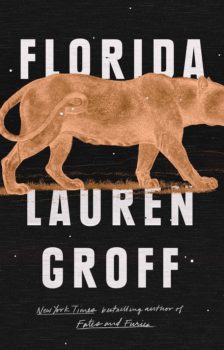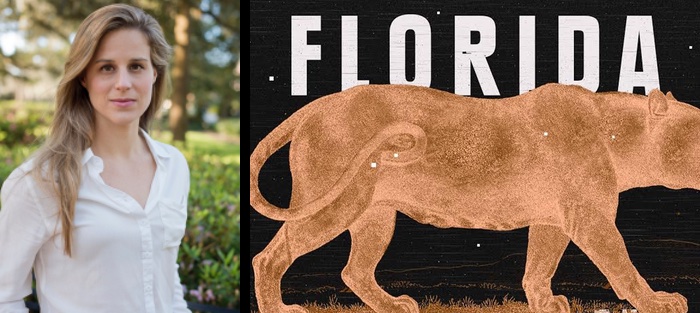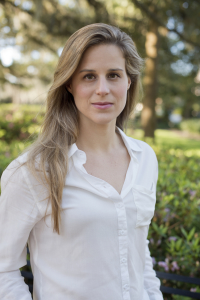 Part of my routine in this pandemic has been twice daily walks around the neighborhood with my dog. I feel they are curative — of what, I don’t know, isolation? Restlessness? Hopelessness? — and I take them dutifully, like prescribed medicine. These walks punctuate my long days inside, in front of the computer, scrolling through the latest depressing headlines that now constitute news. But I don’t walk alone. Aside from my dog, a story accompanies me: “Ghosts and Empties,” the first story in Lauren Groff’s stellar collection Florida, published in 2018 by Riverhead Books.
Part of my routine in this pandemic has been twice daily walks around the neighborhood with my dog. I feel they are curative — of what, I don’t know, isolation? Restlessness? Hopelessness? — and I take them dutifully, like prescribed medicine. These walks punctuate my long days inside, in front of the computer, scrolling through the latest depressing headlines that now constitute news. But I don’t walk alone. Aside from my dog, a story accompanies me: “Ghosts and Empties,” the first story in Lauren Groff’s stellar collection Florida, published in 2018 by Riverhead Books.
The story is a series of observations by a nameless narrator as she walks through her northern Florida neighborhood each night. This mother of two isn’t strolling. She is full of grief and angst and terror. The first sentence, paragraph-long and breathless, perfectly establishes the voice, tone, and stakes of the story.
I have somehow become a woman who yells, and because I do not want to be a woman who yells, whose little children walk around with frozen, watchful faces, I have taken to lacing on my running shoes after dinner and going out into the twilit streets for a walk, leaving the undressing and sluicing and reading and singing and tucking in of the boys to my husband, a man who does not yell.
In one sentence, Groff has her characters in conflict and launches the narrator out of tense domesticity and into the night. She also gives the reader a flash of the precise language to come. Her narrator doesn’t simply put on shoes, she laces them. The nighttime ritual doesn’t include washing, but sluicing.
This precision is sustained throughout the story. Each word feels weighty with intention and consideration. After she leaves the house, the neighborhood is defamiliarized, “a second neighborhood unrolls atop the daytime one.” The narrator is our guide through this landscape, showing us the bizarre lurking in the familiar. Her shadow is her only company except it doesn’t merely follow her, it “lags behind me, gallops to my feet, gambols on ahead.” Does the shadow have a mind and will of its own? Is it what propels her into the night?
She is a flâneuse, not coolly detached and idling through the arcades of nineteenth-century Paris, but frantically pacing the paved streets of northern Florida, sensitive to every sound and smell, every lit window and dark corner, walking not at the dawn of modernity but in the trenches of motherhood in the Anthropocene.
Every nook and cranny of the neighborhood that her eye lands on is charged with significance. The sensory details are lush. Smells are “exhaled into the air,” Spanish moss dangles “like armpit hair,” and holiday decorations linger until they “slowly seep into daily décor.” Is the narrator’s inner turmoil souring all of her observations or giving her some special insight into the sourness in bloom all around us? Her eye lands on an icicle and the description slows down, becomes portentous: “I think of the way water gathers as it slips down an icicle’s length, pauses to build its glossy drop, becomes too fat to hang on, plummets down.” Groff turns a melting icicle into a metaphor for the human condition.
Yet the narrator looks everywhere for signs of hope, even in a bunker-like nunnery with a bomb shelter in the basement. She finds solace in imagining its six nuns surviving the bomb “in full regalia in their shelter, singing hymns and spinning on a stationary bike to keep the lightbulb sputtering on, while, above ground, all has been blasted, and rusted hinges rasp the wind.” Some sort of faith or goodness must survive. In my walks past empty storefronts and closed schools, I think of some nameless young scientist running a centrifuge at all hours of the night, looking for a cure.
“On my nighttime walks, the neighbor’s lives reveal themselves, the lit windows domestic aquariums.” The narrator peers into her neighbor’s worlds just as Groff, throughout the collection, peers into the world of her characters and builds, through an understated lyricism of careful observations and precise language, bridges for her readers to cross from the particular anxieties of a character to our larger, shared humanity.
The neighborhood—the world—is full of violence, decay, menace, the downtrodden, forgotten, and displaced. Men “hiss nasties” outside the bodega. A therapist sleeps with his patient until her husband catches them in the act and kills her. Exhausted mothers scan the floor “for tiny Legos or half-chewed grapes or the people they once were, slumped in the corners.” The narrator spends her days reading up on the disasters unfolding around us, the disasters we’ve made, “the glaciers dying like living creatures, the great Pacific trash gyre, the hundreds of unrecorded deaths of species, millennia snuffed out as if they were not precious.” She watches an otter devour two cygnets in the pond. This is the world she must navigate, make a home in, raise her sons to inherit.
She walks on. Winter gives way to spring. Valentine’s Day is marked by the death of a nun. March makes her think of a local home renovation gone awry, its collapse and the construction worker who survived by standing in the window like Buster Keaton in his iconic stunt in the film Steamboat Bill, Jr. The narrator reveals that she can imagine how he felt because:
One night just before Christmas I came home late after a walk and my husband was in the bathroom and I flipped open his computer and saw what I saw there, a conversation not meant for me, a snip of flesh that was not his, and without letting him know I was in the house, I about-faced and went out again and walked until it was too cold to walk, until just before dawn, when the dew could have easily been ice.
She slips into the house unnoticed, a ghost, until his infidelity drives her back out into the night.
Society provides no solace. Her walks lead her to the drugstore. Even this supposed house of cures, is nothing but “aisles of gaudy trash and useless wrapping and plastic pull tabs that will one day end up in the throat of the earth’s last sea turtle.” Understandably, her feet ache from all the walking. She develops a limp that “morphs into a kind of pained bopping” and reminds her of her parents playing Paul Simon’s “Graceland” nonstop. Beautiful lyrics about “a trip with a son, the human trampoline, the window in the heart.” And, though the narrator doesn’t say it, about ghosts and empty sockets as traveling companions, about ghosts and empties and, despite it all, a belief in grace.
If society offers no salve, nature might. In the form of a new look at a familiar tree. The oak by the former nunnery is now illuminated by newly-installed lighting. She always knew the tree was there. Her children have swung from its branches “but the tree has never before announced itself fully as the colossus it is.” The beauty of it shocks her, stills her walking. But is this beauty, the endurance of nature, its tainted splendor, enough?
The final paragraph is a breathless rush to the end where the narrator imagines herself in spirit-form, ghost-like, haunting her own home:
I slid through the crack under the doors and curled myself on the pillows to breathe into me the breath that my children breathed out…Soon, tomorrow, the boys will be men, then the men will leave the house, and my husband and I will look at each other crouching under the weight of all that we wouldn’t or couldn’t yell, as well as all those hours outside walking together, my body, my shadow, and the moon. It is terribly true, even if the truth does not comfort, that if you look at the moon for long enough night after night, as I have, you will see that the old cartoons are correct, that the moon is, in fact, laughing. But it is not laughing at us, we lonely humans, who are far too small and our lives far too fleeting for it to give us any notice at all.
No easy absolution, no clear-cut uplift at the end. Maybe a meager sort of Stoic solace in the face of environmental devastation and our own mortality.
Still, if we lonely humans don’t even warrant a laugh, the truth of the story somehow comforts. The beauty of Groff’s prose. I take it with me as I walk, a short story full of majesty. Even, perhaps, full of grace.







